
Naran: The Jewel of Kaghan Valley
Nestled in the heart of the Kaghan Valley, Naran is a captivating town that promises an unforgettable experience for nature lovers and adventure seekers alike. With its lush green meadows, crystal-clear rivers, and towering snow-capped peaks, Naran is a paradise waiting to be explored. Whether you are looking to escape the hustle and bustle of city life or simply want to immerse yourself in the serenity of nature, Naran offers a perfect retreat. One of the most enchanting attractions in Naran is Lake Saif-ul-Malook. This stunning alpine lake, surrounded by majestic mountains, is a sight to behold. According to local legend, the lake is named after an Egyptian prince who fell in love with a fairy at this very spot. A boat ride on the pristine waters of Saif-ul-Malook is a must-do activity, offering breathtaking views and a sense of tranquility that is hard to find elsewhere. For those with a penchant for adventure, Naran serves as the gateway to several trekking routes, including the challenging trek to Ansoo Lake. Named after its teardrop shape, Ansoo Lake is a hidden gem that requires both determination and stamina to reach. The journey, however, is well worth the effort, rewarding trekkers with panoramic views and a sense of accomplishment. Naran also offers a unique cultural experience. The local bazaars are teeming with vibrant handicrafts, traditional clothing, and delicious local cuisine. Don't miss the opportunity to try 'Chapli Kebabs,' a local delicacy that will tantalize your taste buds. The warm hospitality of the locals adds to the charm, making your visit even more memorable.
Local tips in Naran
- Visit during the summer months (June to August) for the best weather and accessibility to tourist spots.
- Carry warm clothing, as temperatures can drop significantly, especially at night.
- Book accommodations in advance, as Naran can get crowded during peak tourist season.
- Hire a local guide for treks to ensure safety and to gain better insights into the region.
- Try to travel in a 4x4 vehicle, as some roads can be rugged and challenging.
- Respect local customs and traditions; a little courtesy goes a long way in making your visit enjoyable.
Naran: The Jewel of Kaghan Valley
Nestled in the heart of the Kaghan Valley, Naran is a captivating town that promises an unforgettable experience for nature lovers and adventure seekers alike. With its lush green meadows, crystal-clear rivers, and towering snow-capped peaks, Naran is a paradise waiting to be explored. Whether you are looking to escape the hustle and bustle of city life or simply want to immerse yourself in the serenity of nature, Naran offers a perfect retreat. One of the most enchanting attractions in Naran is Lake Saif-ul-Malook. This stunning alpine lake, surrounded by majestic mountains, is a sight to behold. According to local legend, the lake is named after an Egyptian prince who fell in love with a fairy at this very spot. A boat ride on the pristine waters of Saif-ul-Malook is a must-do activity, offering breathtaking views and a sense of tranquility that is hard to find elsewhere. For those with a penchant for adventure, Naran serves as the gateway to several trekking routes, including the challenging trek to Ansoo Lake. Named after its teardrop shape, Ansoo Lake is a hidden gem that requires both determination and stamina to reach. The journey, however, is well worth the effort, rewarding trekkers with panoramic views and a sense of accomplishment. Naran also offers a unique cultural experience. The local bazaars are teeming with vibrant handicrafts, traditional clothing, and delicious local cuisine. Don't miss the opportunity to try 'Chapli Kebabs,' a local delicacy that will tantalize your taste buds. The warm hospitality of the locals adds to the charm, making your visit even more memorable.
When is the best time to go to Naran?
Iconic landmarks you can’t miss
Saif ul Malook National Park
Explore Saif ul Malook National Park, a breathtaking blend of stunning landscapes and rich folklore in Khyber Pakhtunkhwa, Pakistan.
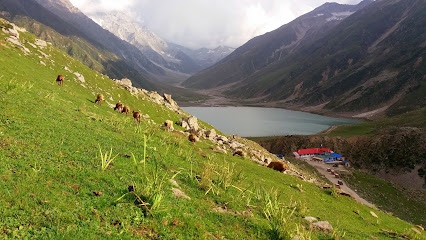
HOTEL deMANCHI
Discover tranquility and adventure at Hotel deMANCHI in Naran, a perfect resort hotel amidst stunning Himalayan landscapes.

Naran Valley
Explore the stunning beauty of Naran Valley, a breathtaking destination in Khyber Pakhtunkhwa, Pakistan, surrounded by majestic mountains and rivers.
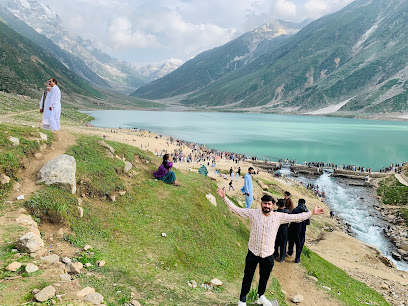
Bridge of Jheel Saif Ul Malook
Discover the enchanting beauty of Jheel Saif Ul Malook, a serene lake surrounded by majestic mountains in the heart of Naran, Pakistan.
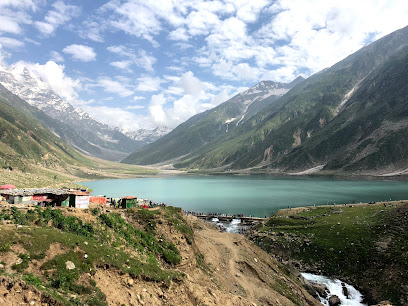
Kaghan Valley
Discover the breathtaking Kaghan Valley, a serene escape in Khyber Pakhtunkhwa, Pakistan, known for its stunning landscapes and vibrant natural beauty.
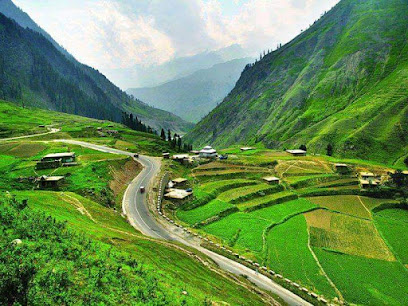
Naran View hotel
Experience unparalleled mountain views and warm hospitality at Naran View Hotel, your perfect escape in the mesmerizing Naran Valley.
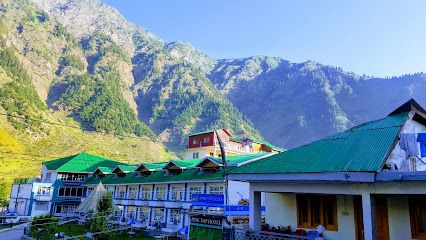
PTDC Motels, Naran
Experience serene mountain views and warm hospitality at PTDC Motels, Naran, your perfect base for exploring the natural beauty of Khyber Pakhtunkhwa.

Lalazar
Explore the breathtaking beauty of Lalazar, a serene hiking haven in Khyber Pakhtunkhwa, Pakistan, renowned for its lush landscapes and vibrant wildflowers.
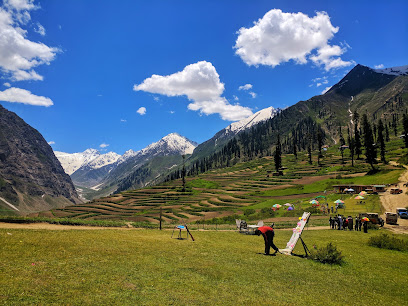
Hotel One Naran
Discover the perfect blend of comfort and nature at Hotel One Naran, your gateway to the scenic beauty of Khyber Pakhtunkhwa.
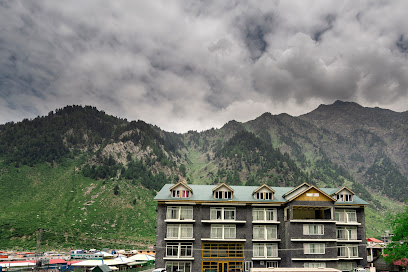
Gateway Hotel & Restaurant
Experience the best of local cuisine and stunning mountain views at Gateway Hotel & Restaurant in Naran, Khyber Pakhtunkhwa.
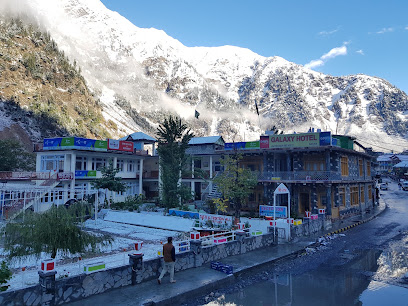
Fairy Meadows Hotel
Discover the enchanting beauty of Naran at Fairy Meadows Hotel, your gateway to breathtaking landscapes and unforgettable adventures in Khyber Pakhtunkhwa.

Lalazar Hotel
Discover the beauty of Naran while enjoying a comfortable stay at Lalazar Hotel, your gateway to Khyber Pakhtunkhwa's natural wonders.
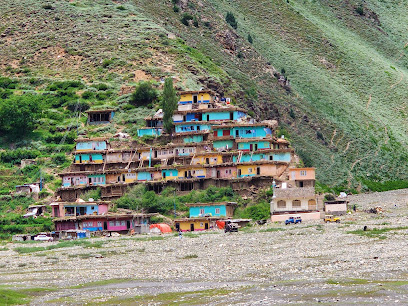
The Sarai Hotel & Resort Naran
Discover luxury and nature at The Sarai Hotel & Resort Naran, a serene escape in Khyber Pakhtunkhwa, Pakistan, surrounded by stunning landscapes.
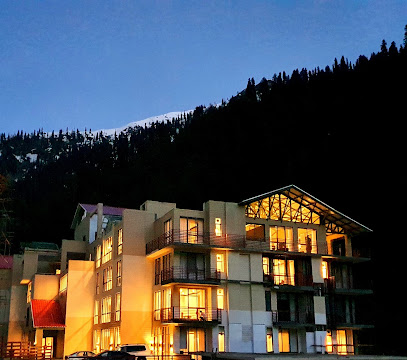
Parhena Cottages
Explore the tranquil beauty of Parhena Cottages, your perfect getaway in Khyber Pakhtunkhwa, blending comfort with breathtaking nature.
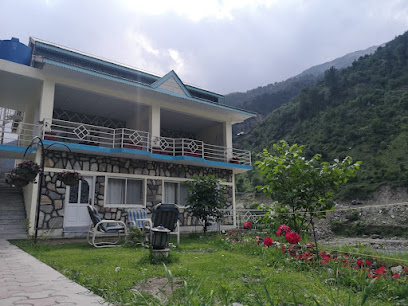
Hotel Home Naran
Experience the perfect blend of comfort and local cuisine at Hotel Home Naran, your ideal retreat in the breathtaking Naran Valley.
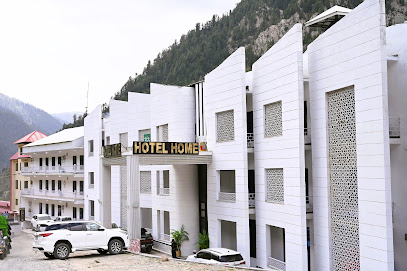
Unmissable attractions to see
Saif ul Malook National Park
Experience the stunning landscapes and adventurous trails of Saif ul Malook National Park in Khyber Pakhtunkhwa, Pakistan.
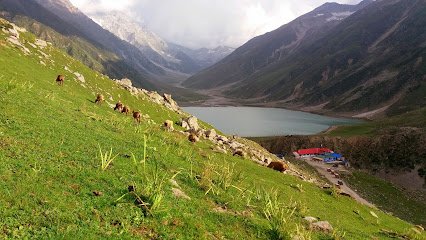
Saif-ul-Maluk Lake
Discover the breathtaking beauty of Saif-ul-Maluk Lake in Khyber Pakhtunkhwa, where serene waters meet majestic mountains and rich folklore.
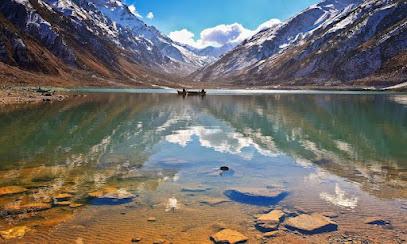
Lulusar-Dudipatsar National Park
Explore the breathtaking beauty of Lulusar-Dudipatsar National Park, a paradise for hikers and nature lovers in Khyber Pakhtunkhwa, Pakistan.
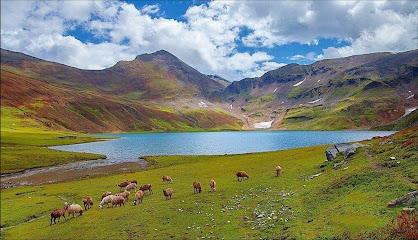
Kaghan Valley
Experience the breathtaking beauty of Kaghan Valley, a natural paradise in Khyber Pakhtunkhwa, Pakistan, perfect for adventure and tranquility.
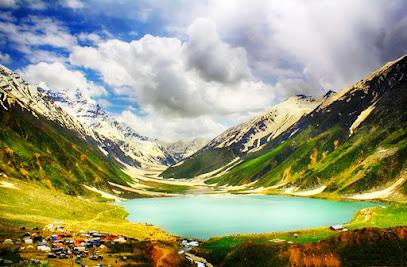
Lalazar Fall
Explore the breathtaking beauty of Lalazar Fall, a hidden gem in Khyber Pakhtunkhwa, where nature and adventure await.
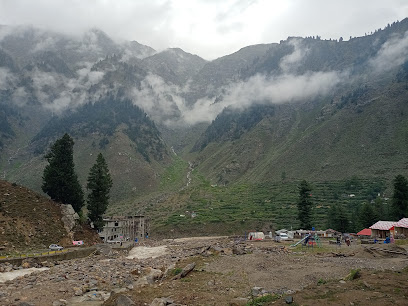
Tiger Peak
Explore the breathtaking views and serene beauty of Tiger Peak, a top tourist destination in Khyber Pakhtunkhwa, Pakistan.
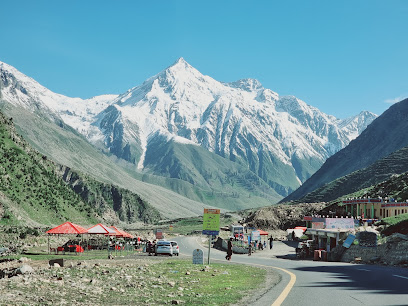
Batakundi River Crossing
Discover the serene beauty of Batakundi River Crossing, a picturesque paradise in Khyber Pakhtunkhwa, Pakistan, perfect for nature lovers and adventure seekers.
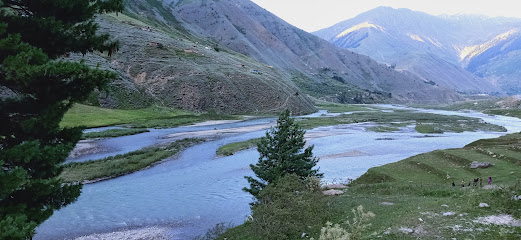
Kaghan, Mansehra, Khyber Pakhtunkhwa, Pakistan
Explore the enchanting beauty of Kaghan Valley, a serene paradise in Pakistan with breathtaking landscapes and rich cultural heritage.
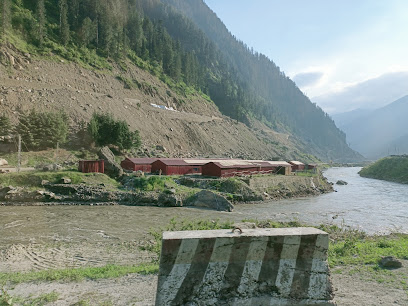
Naran Zipline
Experience the thrill of soaring through the stunning landscapes of Naran, Pakistan at Naran Zipline, the ultimate adventure for thrill-seekers.
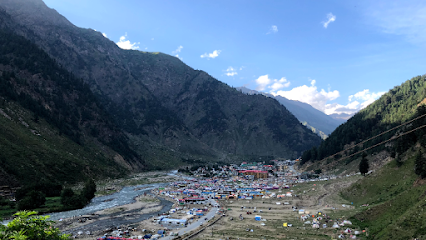
Tree Park
Discover the serene beauty of Tree Park in Naran, a perfect blend of lush nature and breathtaking mountain views, ideal for relaxation and exploration.
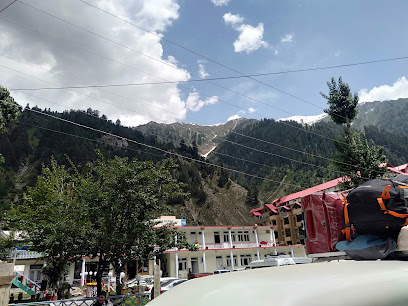
Burwai Water Glaciers
Experience the breathtaking beauty of Burwai Water Glaciers in Kaghan Valley, a natural wonder surrounded by majestic mountains and lush landscapes.
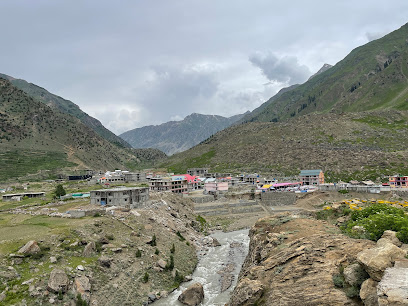
Batakundi, Mansehra, Khyber Pakhtunkhwa, Pakistan
Explore the enchanting landscapes of Batakundi in Khyber Pakhtunkhwa, Pakistan, a serene retreat for nature lovers and adventure seekers.
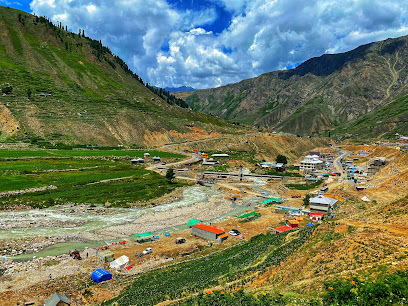
Bata Kundi Kaghan Valley
Explore the breathtaking landscapes and serene atmosphere of Bata Kundi, a gem in the heart of Kaghan Valley, Pakistan.
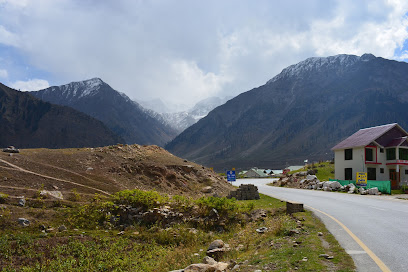
Heart Lake
Experience the serene beauty of Heart Lake, a breathtaking natural attraction in Mansehra, Khyber Pakhtunkhwa, perfect for nature lovers and adventure seekers alike.
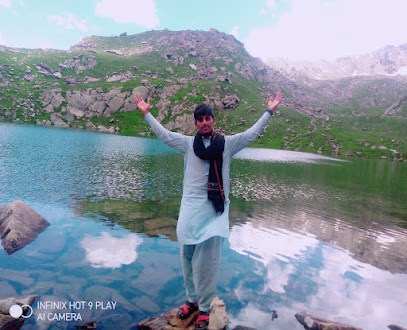
Dunga Katha Ford (Water Crossing)
Explore Dunga Katha Ford, a thrilling water crossing in Khyber Pakhtunkhwa, Pakistan, where adventure meets breathtaking natural beauty.
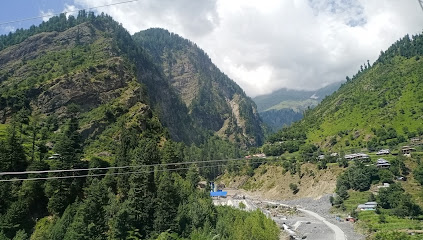
Essential places to dine
Moon Restaurant
Experience authentic flavors at Moon Restaurant in Naran – where delightful cuisine meets breathtaking mountain views.
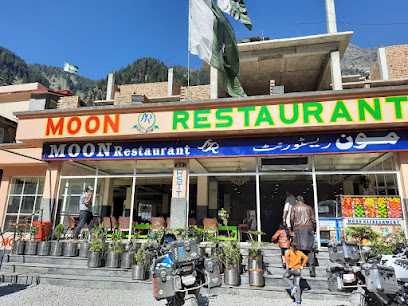
Punjab Tikka House - (Naran)
Discover the vibrant tastes of Pakistan at Punjab Tikka House in Naran—where every bite tells a story!
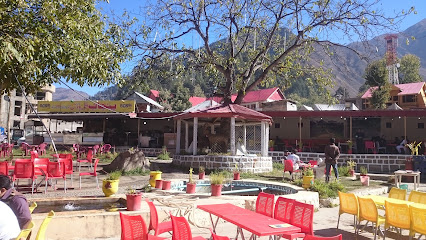
Gateway Hotel & Restaurant
Experience exquisite dining at Gateway Hotel & Restaurant in Naran – where local flavors meet stunning mountain views.
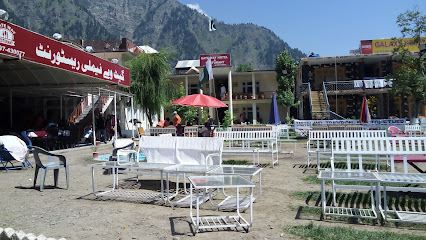
Mount Feast Hotel Naran
Experience unparalleled comfort and breathtaking views at Mount Feast Hotel Naran - your perfect getaway in Khyber Pakhtunkhwa.
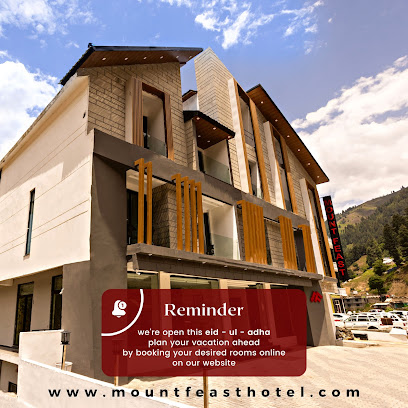
New Park Hotel & Restaurant
Discover breathtaking views and delightful flavors at New Park Hotel & Restaurant in Naran – your perfect retreat in Khyber Pakhtunkhwa.
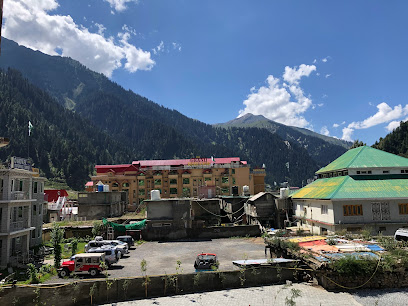
The Sarai Hotel & Resort Naran
Experience luxury amidst nature at The Sarai Hotel & Resort Naran - your gateway to adventure in Khyber Pakhtunkhwa.
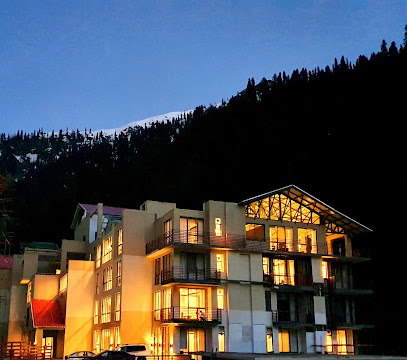
Subway
Enjoy fresh and customizable sandwiches at Subway in Naran, nestled by Saif-ul-Malook Bridge amidst stunning Khyber Pakhtunkhwa landscapes.
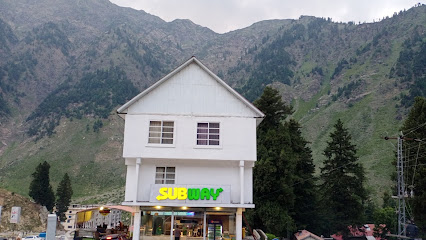
Hotel Home Naran
Experience unparalleled comfort and delectable cuisine at Hotel Home Naran in the breathtaking landscapes of Khyber Pakhtunkhwa.
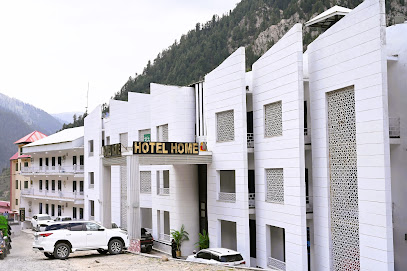
Jovial Gold Hotel Naran
Discover exceptional dining at Jovial Gold Hotel Naran - where culinary delights meet stunning mountain views.

Hotel Royal Dream Naran
Experience authentic Pakistani cuisine surrounded by breathtaking landscapes at Hotel Royal Dream Naran.
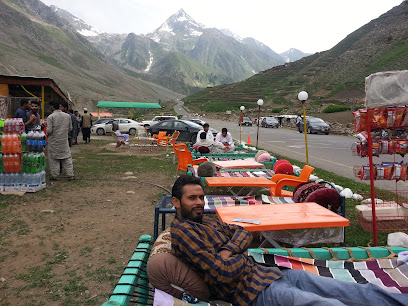
The Troutland Hotel & Restaurant
Experience exquisite dining and serene accommodations at The Troutland Hotel & Restaurant in Kaghan Valley's breathtaking landscape.
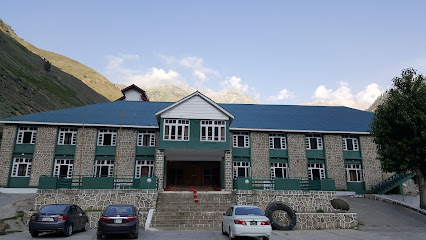
Iconic Hotel & Restaurant Naran
Experience luxury and comfort at Iconic Hotel & Restaurant Naran amidst breathtaking natural beauty.
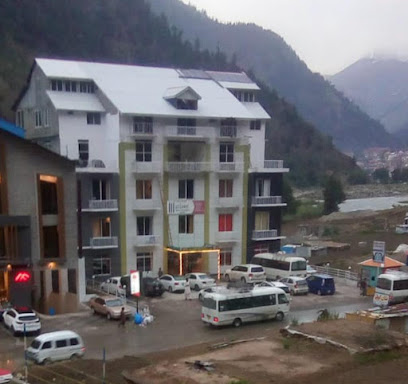
The Pizza Art
Discover The Pizza Art in Naran: A Fast Food Haven Offering Delicious Pizzas Amidst Stunning Natural Beauty.
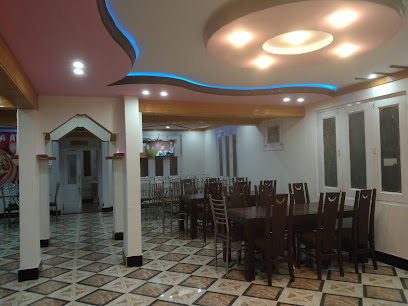
Anwar ul Madina Hotel & Restaurant
Experience authentic Pakistani cuisine amidst stunning mountain views at Anwar ul Madina Hotel & Restaurant in Naran.
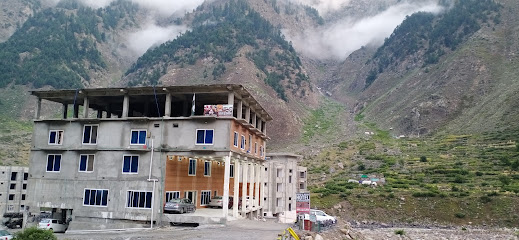
Butt Tikka Karahi
Discover authentic Pakistani barbecue at Butt Tikka Karahi in Naran – where every dish tells a story of tradition and flavor.
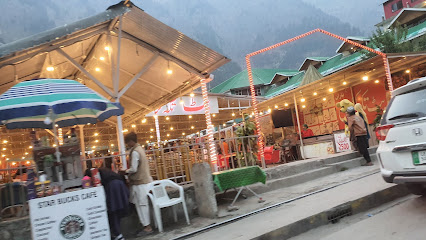
Markets, malls and hidden boutiques
Srinagar shawl Naran
Discover exquisite shawls and authentic handicrafts at Srinagar Shawl Naran, a vibrant shopping destination in the heart of Naran, Khyber Pakhtunkhwa.
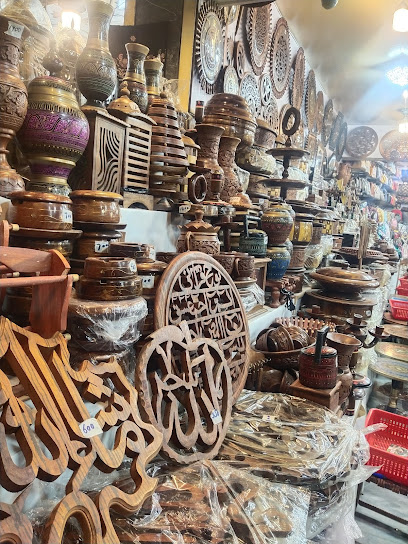
Naran Bazaar
Explore the vibrant Naran Bazaar, a cultural gem in Khyber Pakhtunkhwa, brimming with local crafts, delicious food, and a lively atmosphere.
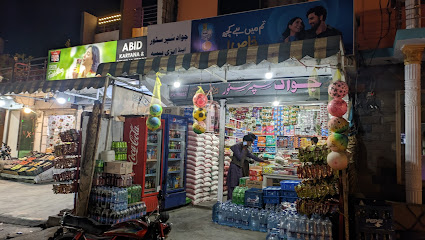
Rental Camping
Explore the breathtaking landscapes of Naran with Rental Camping, your essential stop for outdoor adventures in Khyber Pakhtunkhwa.
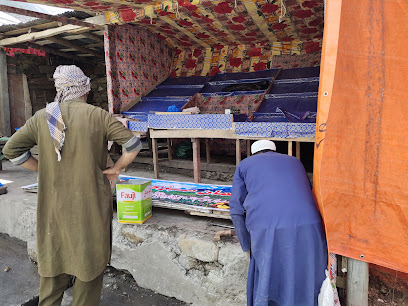
Fotoking-Aljanat Super store
Explore the vibrant Fotoking-Aljanat Super Store in Naran, a shopping paradise for unique local crafts and essential travel needs amidst stunning scenery.
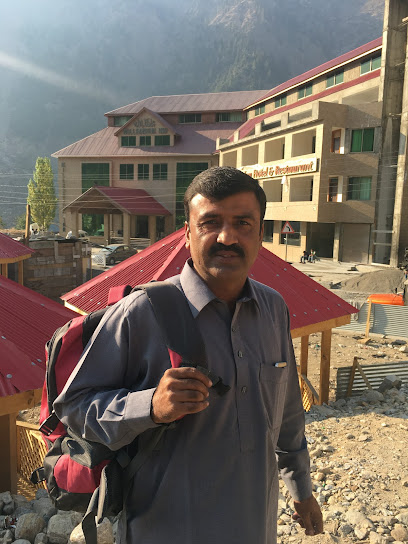
China Cash and Carry, Naran
Discover the best of local and international products at China Cash and Carry, a must-visit grocery store in the heart of Naran, Khyber Pakhtunkhwa.
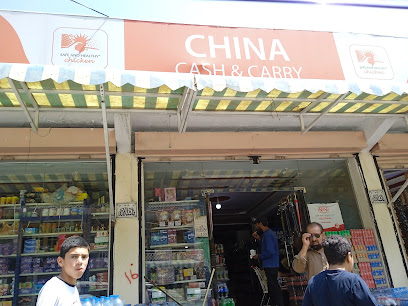
N-15 Cafe & Deli
Discover the delightful N-15 Cafe & Deli in Naran, offering exceptional coffee, baked goods, and tasty fast food amidst stunning natural beauty.
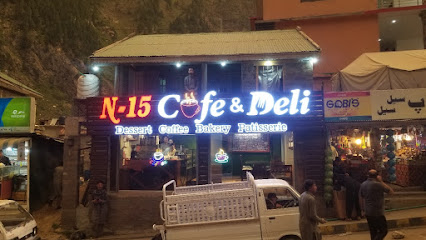
Sajid Mobiles Easy Paisa jazz cash &Easy Load Shop
Discover Sajid Mobiles in Naran for all your mobile service needs, ensuring you stay connected while exploring the beauty of Khyber Pakhtunkhwa.
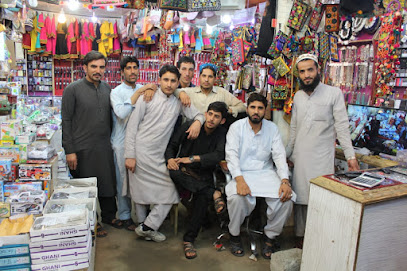
Naran Super Store
Discover local treasures at Naran Super Store, your one-stop destination for essentials and souvenirs in the heart of Khyber Pakhtunkhwa.
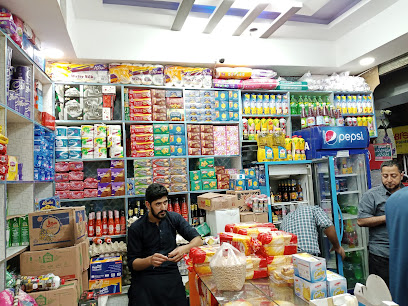
Adeel Store
Discover the vibrant culture of Naran at Adeel Store, where unique handicrafts and authentic souvenirs await every traveler.

Karachi Super store
Discover the vibrant essence of Naran at Karachi Super Store, your gateway to local flavors and essentials in Khyber Pakhtunkhwa.
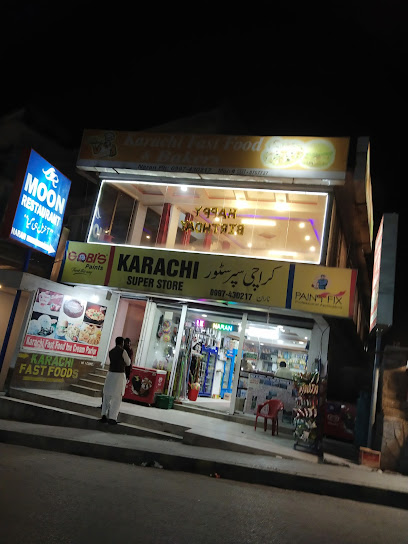
Kashi Paan Shop
Discover the vibrant flavors of Kashi Paan Shop in Naran, where tradition meets taste in every bite of delightful paan.
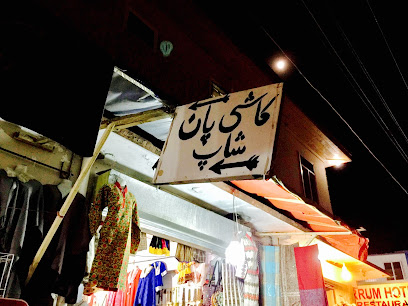
Styles Mall
Discover Styles Mall in Naran, the go-to destination for workwear shopping amidst the stunning natural beauty of Khyber Pakhtunkhwa.
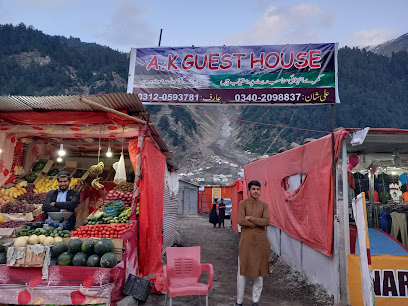
باجوڑ گفٹ سنٹر ناران
Discover unique souvenirs and local handicrafts at Bajaur Gift Center in Naran, capturing the essence of Khyber Pakhtunkhwa's rich culture.
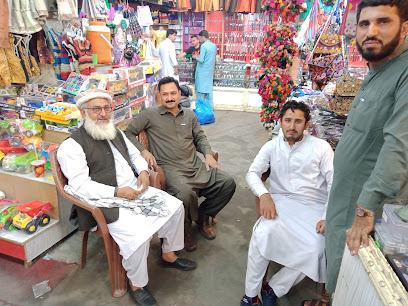
Billa G pan Shop Naran
Discover the authentic tastes and charming souvenirs at Billa G Pan Shop in Naran, a local treasure in Khyber Pakhtunkhwa.
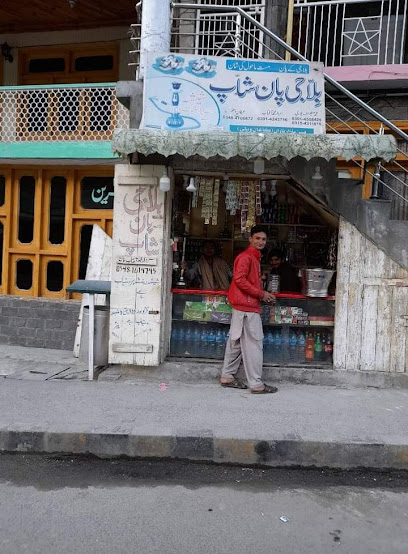
Haroon jewelry
Discover exquisite craftsmanship at Haroon Jewelry in Naran, where each piece reflects the rich cultural heritage of Khyber Pakhtunkhwa.
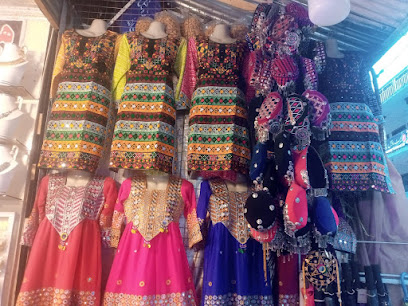
Essential bars & hidden hideouts
Naran Kaghan Hotel
Discover the serene beauty of Naran at Naran Kaghan Hotel, your comfortable retreat in the heart of Khyber Pakhtunkhwa.
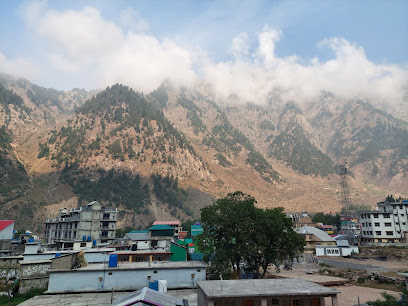
Hotel Naran
Discover tranquility and adventure at Hotel Naran, your perfect base for exploring the breathtaking landscapes of Khyber Pakhtunkhwa, Pakistan.
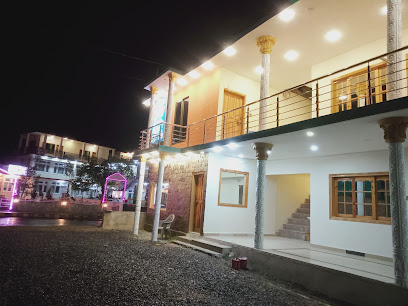
Moon Restaurant
Discover the flavors of Pakistan at Moon Restaurant in Naran, where delicious cuisine meets breathtaking mountain views for an unforgettable dining experience.
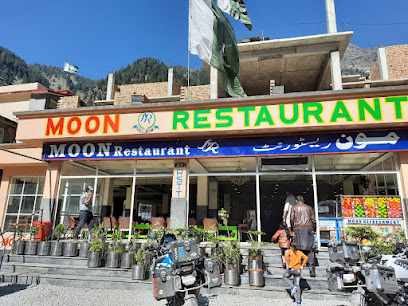
Punjab Tikka House - (Naran)
Discover the authentic taste of Pakistan at Punjab Tikka House in Naran, where delicious food meets warm hospitality.
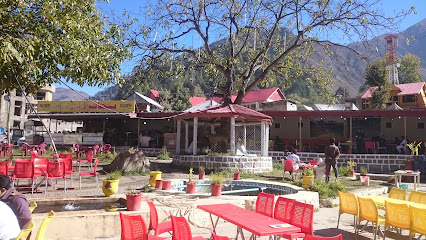
Gateway Hotel & Restaurant
Discover culinary delights at Gateway Hotel & Restaurant, where local flavors meet stunning mountain views in Naran, Khyber Pakhtunkhwa.
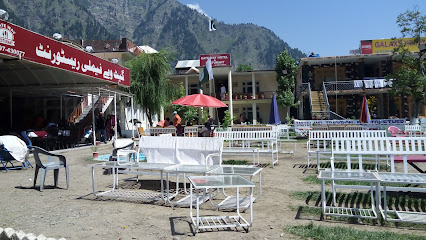
Mount Feast Hotel Naran
Discover the perfect blend of comfort and culinary delights at Mount Feast Hotel Naran, your gateway to the stunning landscapes of Khyber Pakhtunkhwa.
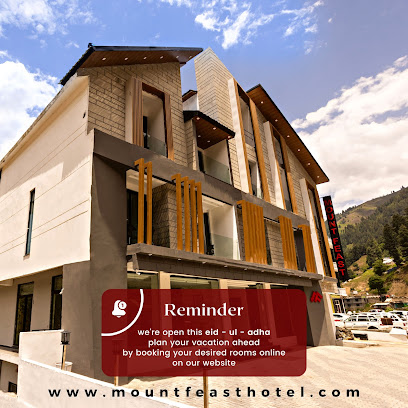
Hotel Home Naran
Experience luxury and local flavors at Hotel Home Naran, your gateway to the breathtaking Naran valley in Khyber Pakhtunkhwa, Pakistan.
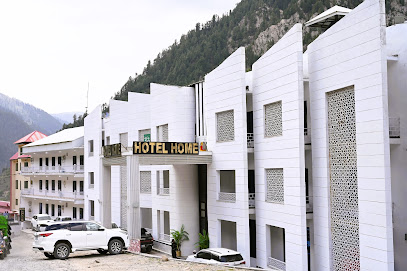
Jovial Gold Hotel Naran
Experience the warmth and beauty of Naran at Jovial Gold Hotel, your perfect retreat for adventure and relaxation in Khyber Pakhtunkhwa.

Manila Heights Hotel Naran
Discover the perfect blend of comfort and culinary excellence at Manila Heights Hotel Naran, your gateway to the breathtaking landscapes of Khyber Pakhtunkhwa.
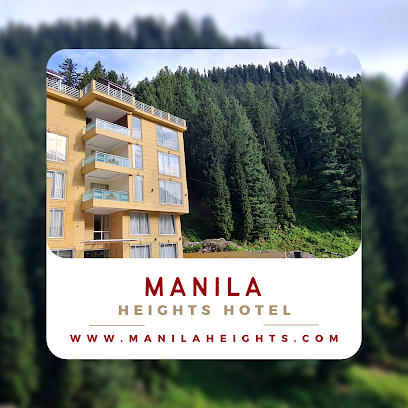
The Troutland Hotel & Restaurant
Experience the exquisite flavors of the Kaghan Valley at The Troutland Hotel & Restaurant, where stunning views meet culinary excellence.
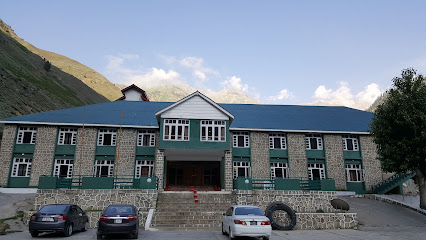
The Pizza Art
Discover the perfect slice of pizza amidst the stunning landscapes of Naran, Pakistan at The Pizza Art.
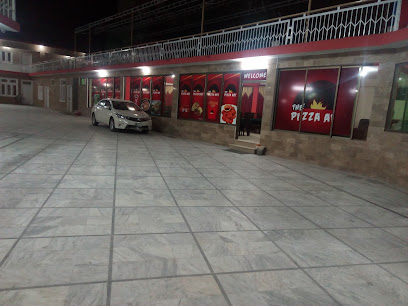
Anwar ul Madina Hotel & Restaurant
Discover the flavors of Khyber Pakhtunkhwa at Anwar ul Madina Hotel & Restaurant in Naran, where culinary tradition meets stunning landscapes.
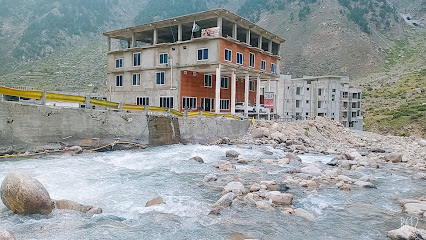
Khan's Kitchen
Experience the authentic taste of Khyber Pakhtunkhwa at Khan's Kitchen, where every dish tells a story of local culture and culinary tradition.
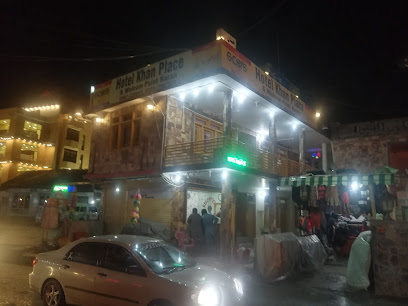
Bismillah Hotel & Chappal Kabab Sarfaraz
Experience the authentic taste of Chappal Kebabs in the heart of Naran, a culinary treasure of Khyber Pakhtunkhwa, Pakistan.
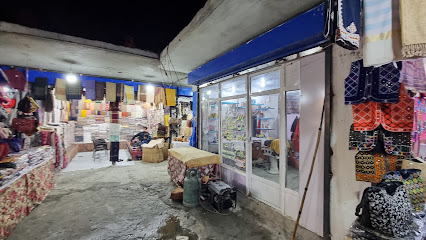
Local Phrases
-
- Helloسلام
[salaam] - Goodbyeخدا حافظ
[khuda hafiz] - Yesہاں
[haan] - Noنہیں
[nahin] - Please/You're welcomeبراہ کرم
[barah-e-karam] - Thank youشکریہ
[shukriya] - Excuse me/Sorryمعذرت چاہتا ہوں
[maazrat chahta hoon] - How are you?آپ کیسے ہیں؟
[aap kaise hain?] - Fine. And you?ٹھیک ہوں۔ آپ؟
[theek hoon. aap?] - Do you speak English?کیا آپ انگلیش بولتے ہیں؟
[kya aap English bolte hain?] - I don't understandمجھے سمجھ نہیں آ رہا
[mujhe samajh nahi aa raha]
- Helloسلام
-
- I'd like to see the menu, pleaseبراہ کرم مینو دیکھنا چاہتا ہوں
[barah-e-karam menu dekhna chahta hoon] - I don't eat meatمیں گوشت نہیں کھاتا
[mein gosht nahi khaata] - Cheers!خوش رہیں!
[khush rahain!] - I would like to pay, pleaseبراہ کرم ادا کرنا چاہتا ہوں
[barah-e-karam ada karna chahta hoon]
- I'd like to see the menu, pleaseبراہ کرم مینو دیکھنا چاہتا ہوں
-
- Help!مدد!
[madad!] - Go away!چلے جاؤ!
[chale jao!] - Call the Police!پولیس کو بلاؤ!
[police ko bulao!] - Call a doctor!ڈاکٹر کو بلاؤ!
[doctor ko bulao!] - I'm lostمیں گم ہو گیا ہوں
[mein gum ho gaya hoon] - I'm illمیں بیمار ہوں
[mein beemar hoon]
- Help!مدد!
-
- I'd like to buy...میں خریدنا چاہتا ہوں...
[mein khareedna chahta hoon...] - I'm just lookingمیں صرف دیکھ رہا ہوں
[mein sirf dekh raha hoon] - How much is it?یہ کتنا ہے؟
[ye kitna hai?] - That's too expensiveیہ بہت مہنگا ہے
[ye bohat mehnga hai] - Can you lower the price?کیا آپ قیمت کم کر سکتے ہیں؟
[kya aap qeemat kam kar sakte hain?]
- I'd like to buy...میں خریدنا چاہتا ہوں...
-
- What time is it?وقت کیا ہوا ہے؟
[waqt kya hua hai?] - It's one o'clockایک بجے ہیں
[ek baje hain] - Half past (10)دس بج کر آدھے ہو گئے ہیں
[das baj kar aadhe ho gaye hain] - Morningصبح
[subah] - Afternoonدوپہر
[dopehar] - Eveningشام
[shaam] - Yesterdayکل
[kal] - Todayآج
[aaj] - Tomorrowکل
[kal] - 1ایک
[aik] - 2دو
[do] - 3تین
[teen] - 4چار
[chaar] - 5پانچ
[paanch] - 6چھے
[chhay] - 7سات
[saat] - 8آٹھ
[aath] - 9نو
[no] - 10دس
[das]
- What time is it?وقت کیا ہوا ہے؟
-
- Where's a/the...?...کہاں ہے؟
[...kahan hai?] - What's the address?پتہ کیا ہے؟
[pata kya hai?] - Can you show me (on the map)?کیا آپ مجھے دکھا سکتے ہیں (نقشہ پر)؟
[kya aap mujhe dikhla sakte hain (naqsha par)?] - When's the next (bus)?اگلی (بس) کب ہے؟
[agli (bus) kab hai?] - A ticket (to ....)ایک ٹکٹ (کوئی جگہ کے لئے)
[aik ticket (koi jagah ke liye)]
- Where's a/the...?...کہاں ہے؟
History of Naran
-
Naran, nestled in the Kaghan Valley, is believed to have been inhabited since ancient times. The region's strategic location along the ancient trade routes made it a melting pot of various cultures, including early Aryan tribes. Archaeological evidence suggests that the area was part of the Gandhara civilization, known for its Buddhist heritage and rich cultural exchange.
-
During the height of the Silk Road, Naran served as a vital transit point for caravans traveling between Central Asia and South Asia. The traders brought not only goods but also ideas, languages, and religions, which contributed to the cultural mosaic of the region. The remnants of these ancient trade routes can still be traced in the valleys and passes surrounding Naran.
-
Under the Mughal Empire, Naran and the broader Kaghan Valley came under the influence of this grand dynasty. The Mughals, known for their architectural and cultural contributions, left their mark on the region. Though no grand Mughal structures remain in Naran, the influence of Mughal culture can be seen in the local crafts, cuisine, and traditions.
-
The British colonial period brought significant changes to the Kaghan Valley, including Naran. The British, fascinated by the region's natural beauty and strategic location, established administrative posts and conducted surveys. They also promoted tourism, which led to the construction of rest houses and trekking routes, laying the groundwork for Naran's future as a tourist destination.
-
After Pakistan's independence in 1947, Naran began to emerge as a popular tourist destination. The government's efforts to promote domestic tourism resulted in the development of infrastructure, including roads, hotels, and recreational facilities. This period marked the beginning of Naran's transformation into a hub for adventure tourism, attracting thousands of visitors each year.
-
Naran is home to a rich tapestry of cultural festivals and traditions. The local population, primarily composed of Pashtun and Gujjar communities, celebrates various festivals with great zeal. Events like the annual Shandur Polo Festival and traditional music and dance performances provide a glimpse into the vibrant cultural life of the region. These festivities are deeply rooted in the local heritage and offer visitors a unique cultural experience.
-
Today, Naran is a bustling tourist town that serves as a gateway to the natural wonders of the Kaghan Valley. The modern developments, including improved road access, luxury hotels, and adventure sports facilities, coexist with the region's historical and cultural heritage. Efforts to preserve the natural environment and cultural integrity continue to be a priority as Naran navigates the challenges of modern tourism.
Naran Essentials
-
Naran is located in the Kaghan Valley of the Khyber Pakhtunkhwa province in Pakistan. The nearest major city is Islamabad, approximately 240 kilometers away. From Islamabad, you can hire a private car, take a bus, or join a tour group to reach Naran. The journey typically takes around 6 to 8 hours by road, depending on traffic and weather conditions. It is advisable to start early in the morning to avoid nighttime travel on mountainous roads.
-
Once in Naran, local transportation options include taxis, jeeps, and rented cars. Jeeps are particularly useful for reaching remote areas and popular destinations like Saif-ul-Malook Lake and Babusar Pass. For shorter distances within the town, walking is also a good option as many attractions are within walking distance. Public transport is limited, so renting a vehicle or hiring a local driver can provide more flexibility.
-
The official currency in Pakistan is the Pakistani Rupee (PKR). Credit and debit cards are accepted in some hotels and larger restaurants, but cash is essential for smaller establishments, local markets, and remote areas. ATMs are available in Naran, but it is recommended to carry sufficient cash, especially if you plan to travel to more isolated spots. Ensure you have small denominations for easier transactions.
-
Naran is generally a safe destination for tourists. However, it is advisable to take standard precautions such as avoiding walking alone at night and keeping an eye on your belongings in crowded places. There are no specific high-crime areas targeting tourists, but it is always best to stay vigilant. Be cautious when traveling on mountainous roads and check weather conditions before setting out on trips.
-
In case of emergency, dial 1122 for immediate assistance. Naran has a basic medical facility for minor health issues, but for more serious medical emergencies, you may need to travel to a larger city like Abbottabad or Islamabad. It is recommended to have travel insurance that covers medical emergencies. Keep a list of emergency contacts, including local police and your country's embassy.
-
Fashion: Do dress modestly, especially when visiting religious sites. Avoid wearing revealing clothing. Religion: Do respect local customs and traditions. Always show respect when visiting mosques and other religious sites. Public Transport: Do be respectful to fellow passengers. Don’t eat or drink on public transport. Greetings: Do greet people with a handshake. Men should wait for women to extend their hand first. Eating & Drinking: Do try local delicacies and accept food offerings graciously. Don’t refuse hospitality, as it is considered impolite.
-
To experience Naran like a local, visit the local bazaars where you can buy fresh produce and traditional Pakistani goods. Engage with locals, as they are often friendly and willing to share stories about the area’s history and culture. Don't miss visiting Saif-ul-Malook Lake early in the morning for the best views. For a unique experience, consider hiking the trails around the town to enjoy the natural beauty and serene environment.
Trending Landmark in Naran
Nearby Cities to Naran
-
Things To Do in Kaghan
-
Things To Do in Abbottabad
-
Things To Do in Murree
-
Things To Do in Swat
-
Things To Do in Gilgit
-
Things To Do in Islamabad
-
Things To Do in Rawalpindi
-
Things To Do in Skardu
-
Things To Do in Chitral
-
Things To Do in Peshawar
-
Things To Do in Jammu
-
Things To Do in Sialkot
-
Things To Do in Gujranwala
-
Things To Do in Leh
-
Things To Do in Amritsar













